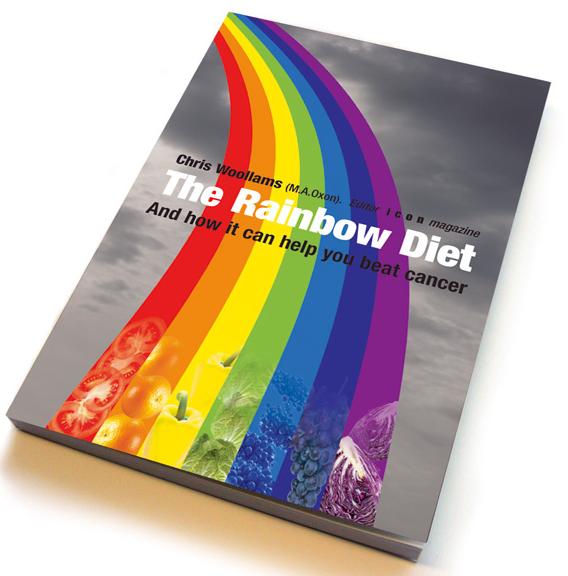Jessica Richards is a real cancer survivor. Jessica was first diagnosed with breast cancer in 2007. She received the message when standing in a queue to board an aircraft. The 55 year old former model turned down the offer of orthodox medicine (chemotherapy, mastectomy, radiotherapy) and instead went on a complete diet overhaul cutting out cows’ dairy, increasing vegetable intake and adding high doses of vitamin C or IVC.
Within three weeks of starting her intensive regime, a scan showed her tumour had gone to sleep and her latest blood tests came back normal.
Five years on she has a new profession – as a mentor to people with cancer. Jessica has also written a book (The Topic of cancer) available from jessicarichards.co.uk. We are pleased to say that Jessica is also a patron of CANCERactive.

In fact her cancer ’reappeared’ some seven years later - this time she used the natural therapy of Black Salve along with her diet regime. The cancer has well and truly gone now.
Taking control of cancer
Receiving a cancer diagnosis can throw your whole world into turmoil and a million scenarios can run through your mind.
In my experience, the best decision I made after the initial diagnosis, was to give myself a few weeks to get used to the idea (and you do) of having cancer, in order that I would be more able to make a well thought out recovery plan and unless you’ve been told that your situation is a medical emergency, it may be worth considering. Check with your consultant or health care practitioner.
After a cancer diagnosis, whilst in a state of shock, we are bombarded with information, opinions, appointments etc and are expected to make some very complex and critical decisions. The following ten steps may help you to deal with the situation in a more calm and logical manner.
Apart from a rational point of view, it’s important to acknowledge that there is an emotional aspect to the disease and it’s necessary to take this into account.
There are many charities and organisations such as Macmillan or, if you have breast cancer, The Haven (www.thehaven.org.uk) who can help you with this and the NHS can put you in touch with cancer nurses and other support groups in your area, as can the CANCERactive website.
1. Diagnosis
Get a diagnosis that you understand even if it means getting a second, third and fourth opinion. (I emphasise ‘diagnosis that you understand’, rather than looking for the diagnosis you’d prefer.) Until you have a definitive diagnosis (as far as possible) you cannot begin to make a plan.

2. Paperwork
It is absolutely vital at all times that you keep proper track of your paperwork. Make sure you get copies of everything concerning your situation and keep it in a file. This will enable you to keep apace with everything that’s going on as well as providing all of your health care practitioners with the same up to date information.
3. Remain present
This is probably the most important mental element at this point. It’s very difficult to keep positive (and you’ll probably get frustrated if you keep hearing this cliché) but you can force yourself to remain present and just deal with the facts that you have right now. This is actually a way to be positive. Being positive can be a proactive thing rather an abstract, intangible concept.
4. Water
Get the cleanest supply of water you can and work your way up to drinking 2 litres per day. Make sure that your water supply is as alkaline as possible. Most bottled water is acidic whereas tap water can be acidic or more alkaline depending on the area you live, but needs a filter to remove chemicals and hormones etc.
I chose a filter which not only ionizes my water but filters out chemicals as well as hormones. It also has various PH settings for drinking and cleaning purposes. This means I can clean my house with mainly water!

5. Diet
Get the appropriate food and drink into your house. Whatever your diagnosis, eating an alkaline diet whilst tending to your other nutritional requirements can greatly assist in your recovery, whatever treatments you choose. This is something you can take care of immediately but do seek a qualified nutritionist who can advise you on a tailor made regime appropriate for your own particular situation or the abundance of dietary advice available from charities such as CANCERactive or World Cancer Research Fund, two of many.

 At last - the definitive, research-based book on how to build a diet to help beat cancer. Click here to read about it.
At last - the definitive, research-based book on how to build a diet to help beat cancer. Click here to read about it.
6. Juicer
Invest in a juicer. You can buy them very cheaply these days and it doesn’t matter much which one you get to get you started. It’s an easy way to get the vitamins and minerals you need especially if you’ve lost your appetite.


7. Chemicals
Remove chemicals from your environment, which includes any household and personal products, which contain potentially harmful chemicals and replace with natural products as far as possible.
Water, Bicarbonate of Soda and Distilled Vinegar have many uses in household cleaning.
8. Choose your Hospital or Clinic
Investigate which Hospital and/or Clinic would best serve you, which means not just from a practical point of view such as accessibility, facilities etc but also from an emotional point of view. Do you feel relatively safe and comfortable there and do you have confidence in those treating you there? Bear in mind that you may be spending quite a bit of time there over the years.
9. Relaxation
Make time for relaxation. Just fifteen minutes a day will do to start with but you must make sure it’s dedicated time that is not to be relinquished except in a dire emergency. You cannot multi-task during this time. Go to a quiet place where you feel safe, Meditation is the ideal or put on some soft music or open the window and listen to the sounds of nature or get lost in a recording of a favourite novel or poem.
You are also welcome to the free relaxation download available from my website www.jessicarichards.co.uk whatever feels right for you.
10. Team members
Begin to think about your team members and whether they are your choice or if you’ve just accepted health workers etc who’ve been allocated to you. Just begin with one person you can trust and rely on and remember, it’s ultimately your choice who’s in your team.
I found it also helps to think of dealing with cancer in the longer term. More of a marathon than a short sprint. This way you will be less likely to put unfair pressure on yourself and your body. Cancer can take years to develop so perhaps it’s not reasonable to expect to reverse it overnight.
